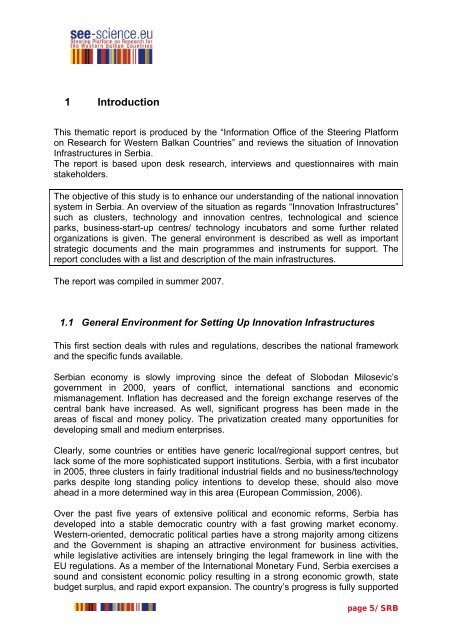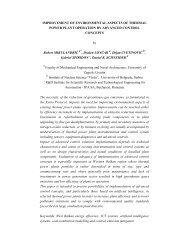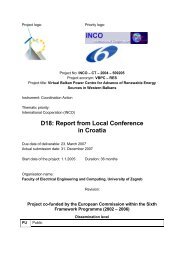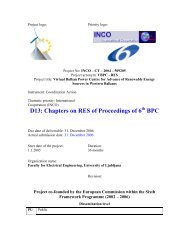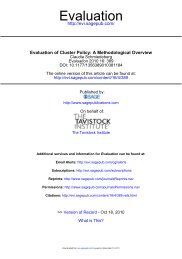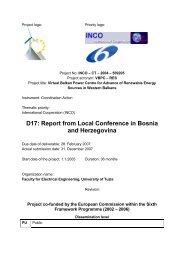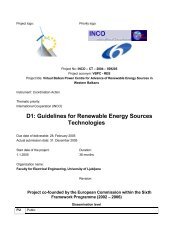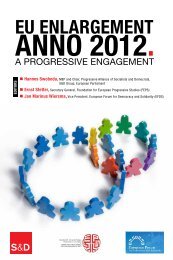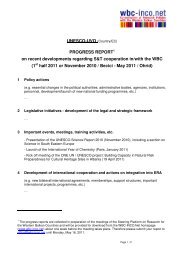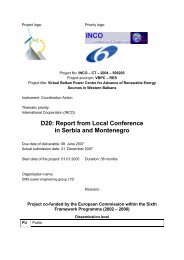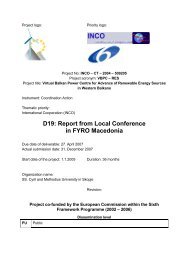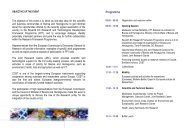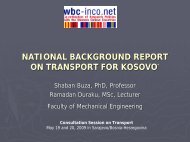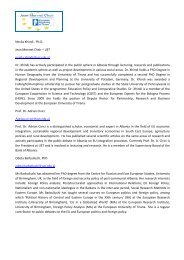S&T Country Report - Albania - WBC-INCO Net
S&T Country Report - Albania - WBC-INCO Net
S&T Country Report - Albania - WBC-INCO Net
You also want an ePaper? Increase the reach of your titles
YUMPU automatically turns print PDFs into web optimized ePapers that Google loves.
1 Introduction<br />
This thematic report is produced by the “Information Office of the Steering Platform<br />
on Research for Western Balkan Countries” and reviews the situation of Innovation<br />
Infrastructures in Serbia.<br />
The report is based upon desk research, interviews and questionnaires with main<br />
stakeholders.<br />
The objective of this study is to enhance our understanding of the national innovation<br />
system in Serbia. An overview of the situation as regards “Innovation Infrastructures”<br />
such as clusters, technology and innovation centres, technological and science<br />
parks, business-start-up centres/ technology incubators and some further related<br />
organizations is given. The general environment is described as well as important<br />
strategic documents and the main programmes and instruments for support. The<br />
report concludes with a list and description of the main infrastructures.<br />
The report was compiled in summer 2007.<br />
1.1 General Environment for Setting Up Innovation Infrastructures<br />
This first section deals with rules and regulations, describes the national framework<br />
and the specific funds available.<br />
Serbian economy is slowly improving since the defeat of Slobodan Milosevic’s<br />
government in 2000, years of conflict, international sanctions and economic<br />
mismanagement. Inflation has decreased and the foreign exchange reserves of the<br />
central bank have increased. As well, significant progress has been made in the<br />
areas of fiscal and money policy. The privatization created many opportunities for<br />
developing small and medium enterprises.<br />
Clearly, some countries or entities have generic local/regional support centres, but<br />
lack some of the more sophisticated support institutions. Serbia, with a first incubator<br />
in 2005, three clusters in fairly traditional industrial fields and no business/technology<br />
parks despite long standing policy intentions to develop these, should also move<br />
ahead in a more determined way in this area (European Commission, 2006).<br />
Over the past five years of extensive political and economic reforms, Serbia has<br />
developed into a stable democratic country with a fast growing market economy.<br />
Western-oriented, democratic political parties have a strong majority among citizens<br />
and the Government is shaping an attractive environment for business activities,<br />
while legislative activities are intensely bringing the legal framework in line with the<br />
EU regulations. As a member of the International Monetary Fund, Serbia exercises a<br />
sound and consistent economic policy resulting in a strong economic growth, state<br />
budget surplus, and rapid export expansion. The country’s progress is fully supported<br />
page 5/SRB


